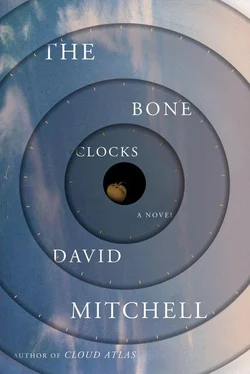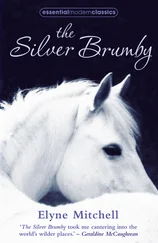Like I said, Nasser’s good. The voice asked for a cigarette.
After another pause, the man asked what supplies we had.
“Baby milk,” said Aziz. “For the hospitals.” Nasser said how his imam told them the American pigs were throwing baby milk into the sewers, to stop Iraqi babies growing up to become jihadists.
“We have hungry babies here, too,” said the man.
Neither Aziz nor Nasser had an answer to hand.
“I said,” repeated the man, “we have hungry babies too.”
If the car was unloaded, I’d be found, a foreigner, within spitting distance of Iraq’s Ground Zero of Incarceration. By hiding, I’d already put my Bosnian Muslim journalist story beyond use. Nasser sounded cheerful. They’d be happy to donate a box of baby powder to the babies of Abu Ghraib. Then, innocently, he asked for a favor in return. His damn car wouldn’t start, and he needed a push.
I couldn’t catch the man’s reply. When the Corolla’s door opened, I had no way of knowing if Nasser was being ordered out at gunpoint, or if every box of baby formula was about to be removed. The seat was flipped forward and the box covering my face was lifted away …
… I saw a hairy wrist with a Chinese Rolex and the underside of the box covering my face. I waited for a shout. Then the driver’s seat flopped back, and no more boxes were taken. I heard laughter, then the car sagged under Nasser’s weight and goodbyes called out. Soon after, I felt the car being pushed along, heard the tires crunch gravel, and felt the car jolt before the engine started.
Aziz half gasped: “I thinked we dead men.”
I was lying under the boxes twisted and breathless.
Thinking, When I get back home, I’ll never leave again .
Thinking, When I get back home, I’ll never feel this alive .
“HOKEY-DOKEY, WE’LL START with the two families,” says the beagle-faced photographer in his Hawaiian shirt. It’s sunny on the church steps, and all the leaves are fresh and lime-green. They’d be microwaved brown by a single afternoon in Mesopotamia, where flora has to equip itself with armor and thorns to survive. “Webbers on the left,” says the photographer, “and Sykeses on the right, if you will.” Pauline Webber gets her family into position with martial efficiency, while the Sykeses drift into place unhurriedly. Holly looks around for Aoife, who’s scooping up drifts of confetti for a confetti fight. “Picture time, Aoife.” Aoife snuggles against Holly and neither think to look for me. So I stay where I am, out of shot. Like all belongers, the Sykeses and Webbers don’t notice how easily they slip into groups, lines, ranks, gangs. But we nonbelongers know what we are, all right. “ Squeeze in both ends, if you will,” says the photographer.
“Wakey-wakey, Ed.” Kath Sykes beckons me. “You’re in on this.”
The devil suggests I answer, “Holly seems to disagree,” but I step between Kath and Ruth. Holly, below, doesn’t turn around, but Aoife, with flowers in her hair, looks back and up. “Daddy, did you see me take up the ring tray?”
“I’ve never seen a ring tray held so skillfully, Aoife.”
“ Daddy , flattery will get you anywhere,” and everyone who hears laughs, so much to Aoife’s delight that she repeats the phrase.
Once I hoped that, by not getting married, me and Holly might avoid the scenes that Mum and Dad played out before Dad got sent down for his twelve years. True, me and Holly don’t shout and throw stuff, but we sort of do, invisibly.
“Hokey-dokey,” says the photographer. “All aboard?”
“Where’s Great-aunt Eilísh?” asks Amanda, Brendan’s eldest.
“Great -great -aunt Eilísh to you, technically,” notes Brendan.
“Right, Dad, whatever.” Amanda’s sixteen.
“We’re on rather a tight schedule,” declares Pauline Webber.
“She was talking to Audrey the vicar …” Amanda scoots off.
The photographer straightens up, his smile drooping. I tell my sort-of sister-in-law, “Beautiful ceremony, Sharon.”
“Cheers, Ed.” Sharon smiles. “Lucky with the weather, too.”
“Blue skies and sunshine all the way from here on in.”
I shake Peter’s hand. “So, Pete, how does it feel to be Mr. Sykes?”
Peter Webber smiles at what he imagines is my mistake. “Er, you mean Mr. Webber, Ed. Sharon’s now Mrs. Webber.”
My expression should tell him, You just married a Sykes, matey , but he’s too in love to read it. He’ll learn. Just like I did.
Holly’s acting like I’m not there. Getting some practice in.
“Ancient lady coming through, make way, make way,” says Great-aunt Eilísh, in her freewheeling Cork accent, escorted by Amanda. “Audrey — the vicar — is off to Tanzania next week and she was asking for a few pointers. Kath, might I just slip in here …” So I step forward and find myself next to Holly after all, wishing I could just slip my hand into hers without it being such a big bloody deal. But it is. I don’t.
“All present and correct,” Pauline Webber tells the photographer. “At last.”
A lithe roller-blader glides past the church. He looks so free.
“Hokey-dokey,” says the photographer, “on the count of three I’d like a big cheesey ‘Cheeeeeeeeese!’ Yes? A-one, a-two, and …”
THROUGH A HOLE blasted in a dry block wall, Aziz snapped a family hurrying across the wasteland north of the doctors’ compound. An Arabic Grapes of Wrath , on foot. I told him it could be a cover shot, if it came out well. “I bring to your hotel tomorrow, after I develop. If on cover,” Aziz rubbed his thumb against his first two fingers in the universal symbol, “Miss Olive, she pay more?”
“ If it’s used, yeah,” I said. “But you ought to—”
A helicopter hammered by very low, blasting up sand and grit, and Aziz and I both ducked. A Cobra gunship? Kids appeared in the road from the next-door compound, shouting and pointing in the ballooning clouds, and watched it disappear. One boy threw a symbolic stone after it. A woman in hijab anxiously called the children in, shot us a hostile glance, and shut the gate. We were about as close as it was possible to get to Fallujah, a golf shot shy of the “Cloverleaf” intersection, where the Abu Ghraib highway knots into Highway 10. South, through the baked and wavery air, was the bad-tempered holding pen of vehicles, pooling at the verges of the outer checkpoint. Large numbers of marines and a couple of Bradleys — mini-tanks, basically — blocked the road. The second checkpoint was just beyond the Cloverleaf, flanked by a bulldozed-up berm, a ridge of dirt and rubble topped with razor wire. Nobody was allowed into Fallujah today, and only women and children were allowed out.
The rumors about this makeshift clinic for refugees set up by a couple of Iraqi doctors turned out to be true. Nasser was inside recording interviews, thanks to his Al Jazeera press accreditation, which was every bit as authentic as my Bosnian passport. Aziz and I had joined him for a while; at least a hundred patients were being attended to by two doctors and two nurses with little more in the way of equipment than donated first aid boxes. “Beds” were blankets on the floor of what had been a spacious living room, and the main operating table had until recently been a pool table. There was no anesthetic. Most patients were in various degrees of pain, a few in agony, and some dying. The mortuary was an inner room, where six unclaimed bodies lay. The flies and the smell were intolerable; some guys were digging graves in the garden. The nurses promised to distribute the infant formula, but the doctors asked us for painkillers and bandages.
Aziz took a few photographs while Nasser conducted interviews. I’d been introduced as Nasser’s Bosnian cousin, also working for Al Jazeera, but anti-foreign sentiment was acute so Aziz and I soon left to wait by the car and let Nasser work unimpeded. We sat on a broken curb and each drank a bottle of water. Even in spring Mesopotamia is so hot you can drink all day and never need to piss. From Fallujah, just a kilometer to the west, we heard gunfire and, every few minutes, big explosions. The air tasted of burning tires.
Читать дальше












